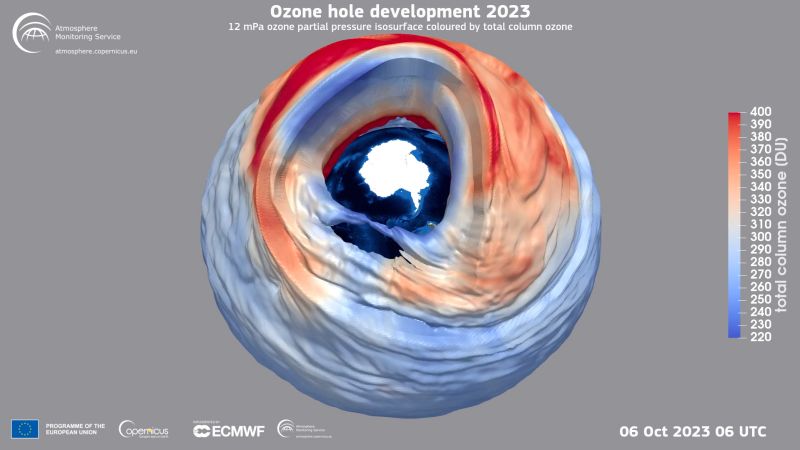The recovery of the ozone layer — which sits miles above the Earth and protects the planet from ultraviolet radiation — has been celebrated as one of the world’s greatest environmental achievements. But in a new study published Tuesday, some scientists claim it may not be recovering at all, and that the hole may even be expanding.
The findings are in disagreement with widely accepted assessments of the ozone layer’s status, including a recent UN-backed study that showed it would return to 1980s levels as soon as 2040.
In 1987, several countries agreed to ban or phase down the use of more than 100 ozone-depleting chemicals that had caused a “hole” in the layer above Antarctica. The depletion is mainly attributed to the use of chlorofluorocarbons, or CFCs, which were common in aerosol sprays, solvents and refrigerants.
That ban, agreed under the Montreal Protocol, is widely considered to have been effective in aiding the ozone layer’s recovery.
But the hole, which grows over the Antarctic during spring before shrinking again in the summer, reached record sizes in 2020 to 2022, prompting scientists in New Zealand to investigate why.



Yep. The smog in LA was a running national news thing in the 80’s.
I remember driving away from NYC in '91 and looking back at a grey smudge hovering over the city.